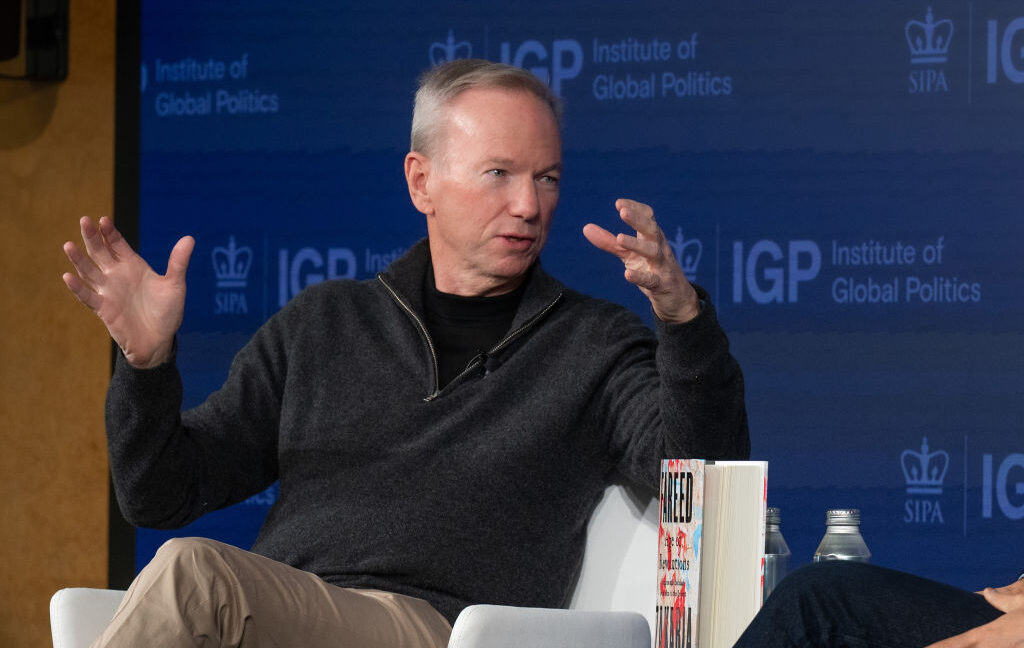Five of the most important fintech VCs investing heavily in the sector

Global investing in fintech startups is starting to see an uptick. Just this week, KPMG issued its Pulse of Fintech report for the second half of 2024. In the fourth quarter of 2024, investment climbed to $25.9 billion from $18 billion in the third quarter, according to KPMG.
Granted, this is not the enthusiasm of years past, especially the wild days of 2021. But judging by our inboxes, there is no shortage of venture capitalists still betting big on the space.
Below is a list of just a few VCs who remain bullish on fintech.
About the VC: Infinity Ventures is a three-year-old early-stage venture firm dedicated to investing in fintech startups globally founded by Jeremy Jonker, Jay Ganatra, and Mario Ruiz.
They left PayPal Ventures in May 2021 and closed on their first $158 million fund in October 2021. In October 2024, the firm raised a $184 million Fund II, bringing total assets under management to more than $350 million.
Average check size: Depends on stage: $1-2 million pre-seed; $2-4 million seed; and $5-10 million Series A.
Notable investments: Rainforest, Pagos, Mendel.
Most recent big investment: SimpleClosure, a business-closure platform.
The firm’s focus is on B2B fintech and commerce enablement.
About the VC: Founded in 2019 by NerdWallet co-founder Jake Gibson and Sheel Mohnot, Better Tomorrow Ventures leads rounds in pre-seed and seed-stage fintech companies globally.
It has $225 million in assets under management.
Average check size: Ranges from $500,000 to $4 million.
Notable investments: Unit, Relay, Coast, Mendel, Charlie.
Most recent major investment: Basis (BTV led seed, Khosla led A).
If pitching Better Tomorrow Ventures, Mohnot previously told us: “Find a way to get in front of us that is exciting! We respond to cold emails all the time — here’s an example of a cold email that worked.”
About the VC: Founded in 2022 by “This Week in Fintech” newsletter author Nik Milanović, The Fintech Fund invests in fintech companies globally at the pre-seed and seed stages.
Last September, the firm closed its second $10 million fund.
Average check size: Ranges from $200,000 to $400,000.
Notable investments: Rainforest, Unit, Cascading AI, Ansa.
Most recent major investment: WiseLayer.
If founders are looking for hands-on investors, they’ll find it in The Fintech Fund, according to Milanović.
“There’s a lot of ETFs that will write large checks,” he told TechCrunch previously. “But our goal is to really bring together this whole community — and that’s newsletter readers, investors in the fund, our angel syndicate — so that when the founder gets a check out of The Fintech Fund, it’s not just money but also a ton of consulting or referrals to new hires and to new customers.”
About the VC: Atlanta-based TTV Capital invests in early-stage companies with a focus on traditional fintech, fintech-enabled businesses and the “future of fintech.”
Its assets under management total over $750 million.
Average check size: Ranges from $2 million to $8 million.
Major investments: Green Dot, Bill.com, Greenlight.
Most recent major investments: Charlie, Payabli.
Partner Lizzie (Guynn) Hartley previously told TechCrunch that when it comes to pitching, she prefers to take initial pitch meetings as video calls.
“Before I talk to a founder on a call, they should be able to clearly articulate the problem they are solving. The ability to distill this down into a digestible and understandable statement is very helpful. I appreciate when founders can walk through the customer workflow end-to-end and prove the customer benefit. This helps us build conviction in a customer’s willingness to pay for a new tool or software,” she said.
About the VC: The firm has been around for well over a decade, exclusively investing in companies building financial technology at the pre-seed to Series A stages. It currently has $4 billion in assets under management.
In 2023, QED Investors announced that it had raised $925 million across two new funds to back fintech startups globally — a $650 million early-stage fund and a $275 million growth-stage fund.
Managing partner and co-founder Nigel Morris told TechCrunch at the time of the firm’s last fund close that QED planned to make about 40 investments out of that early-stage fund.
Average check size: $15 million to $20 million.
Major investments: Credit Karma (QED was the first institutional money into the company), Creditas, Nubank, SoFi.
Most recent major investment: Kin Insurance, One Card, Moniepoint.
QED is focused on embedded finance, cross-border payments and wealth management, as well as on AI. Roughly half of QED’s portfolio is in the U.S., followed by LatAm, Europe, Southeast Asia and Africa. It’s also looking into fintech opportunities in the Middle East. One of its more recent investments was in Japan, its first in the country.
Want more fintech news in your inbox? Sign up for TechCrunch Fintech here.
Want to reach out with a tip? Email me at maryann@techcrunch.com or send me a message on Signal at 408.204.3036. You can also send a note to the whole TechCrunch crew at tips@techcrunch.com. For more secure communications, click here to contact us, which includes SecureDrop and links to encrypted messaging apps.







